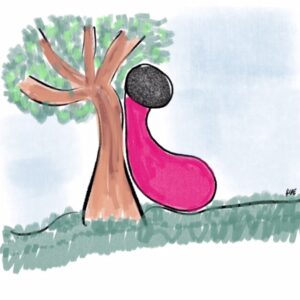
For as long as I can remember, I’ve strived for a sense of ease. I envisioned navigating through life with a lightness of being. Yet, upon reflection, I’ve noticed a recurring pattern: as soon as I master one area, I am drawn to explore newer challenges and territories.
From fostering engaged and inclusive cultures in organizations to designing leadership programs for organizations like the United Nations and Ford Motor Company and from executive coaching to writing books and leading Open Stance peer coaching circles, my journey has been one of continuous growth and evolution. Each new endeavor brings with it a mix of excitement and discomfort.
Of course, these areas are related and build on one another. While I am deeply grateful for the opportunities I’ve had and the work I love, I won’t say that I am always comfortable. In fact, every time I enter unchartered territory, whether with new clients or innovative approaches, I experience a level of discomfort.
However, I’ve realized that discomfort is not a sign of failure but a hallmark of success. In Adam Grant’s insightful book, “Hidden Potential,” he shares that those who achieve their fullest potential are often “creatures of discomfort.” They embrace challenges head-on and stretch themselves beyond their comfort zones.
Grant’s research suggests that discomfort can be a catalyst for growth. When we push ourselves beyond what feels familiar, we become more focused, motivated, and willing to put in the effort required to succeed. Rather than shying away from discomfort, we can learn to see it as a sign of progress and a pathway to realizing our true potential. Helen Keller states, “Character can not be developed in ease and quiet. Only through experiences of trial and suffering can the soul be strengthened, vision cleared, ambition inspired, and success achieved.”
So, let us embrace discomfort as a natural part of the journey toward growth and success. Let us approach new challenges with courage and curiosity, knowing that each moment of discomfort is an opportunity to expand our horizons and unlock hidden potentials within ourselves.
I am grateful to be on the journey with you. What’s your experience with discomfort?
